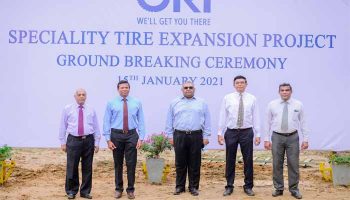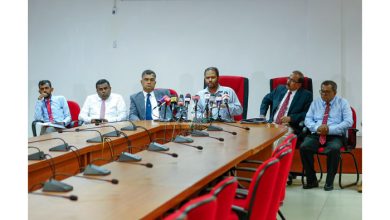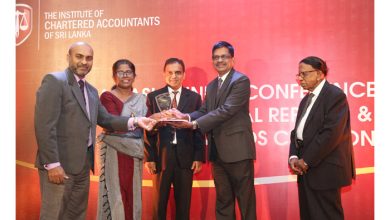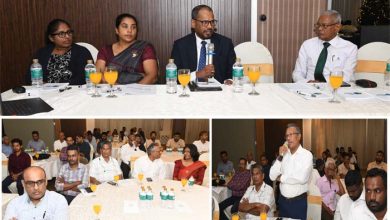“TRAVEL LOCALLY AND EXPERIENCE SRI LANKAN AUTHENTICITY AND HOSPITALITY”

Best Practices of New Zealand Post COVID-19 Tourism and Lessons to be Learned for Sri Lanka
By
Prof. DAC Suranga Silva and Hanshika Herath
The tourism sector took a massive hit through COVID 19 all over the world. It was one of the hardest-hit sectors in the global economy and it is the sector which will take a longer period to recover as a result of border closures in many countries. This recovery is unpredictable, and no one knows when it will happen, although the industry is now getting back up and running slowly in many countries in the world.
New Zealand: Welcoming Domestic Tourists First
The first COVID-19 case in New Zealand was reported on the 28th of February 2020. As of 14th of May 2020, the country had a total of 1497 cases. Due to this significant outbreak, all borders and entry ports were closed to all non-residents on 19th of March 2020. International tourism in New Zealand was massively impacted by this border closure.
Tourism in New Zealand comprises an important sector of the national economy, it directly contributed to NZ$16.2 billion of the country’s GDP. In addition, tourism supported nearly 12% of New Zealand’s workforce.
The vast majority of international tourists arrive in New Zealand to explore its unique geographical location and pristine natural environment. Tourism New Zealand’s main marketing slogan is “100% pure New Zealand” which focuses on how tourists can experience the clean, green and virgin natural environment. The majority of international tourists arrive at Auckland airport, and from there travel to destinations throughout the country in both the North Island and the South Island. Auckland Airport closed-down during the nine-week period of lockdown.
New Zealand immediately took the necessary actions to reenergize the tourism sector. The major strength in New Zealand to bounce back was the strong leadership in the country and their tourism strategy.
“Do Something New New Zealand”,
Tourism Authority of New Zealand launched a new campaign to inspire New Zealanders to make their vacations for travelling and do more and more travelling. This campaign was “Do something New Zealand”, which was aimed to promote more domestic tourism. This campaign highlighted the point that “now it is the perfect time for Kiwis to make their ‘New Zealand Must-Do’ bucket list item a reality, we’ve all got things, we’ve always wanted to see and do”.
The campaign promotional videos shared moments that locals could experience in their own country and sought to stimulate people to think about domestic tourism rather than waiting until the borders opened to go abroad and travel.
The “Do Something New New Zealand” promotion hit the local lifestyle and encouraged people to think about travel locally. Most of the tourism workforce could get back to their jobs through the domestic business generated by the campaign and it supported local businesses significantly.
Before COVID-19, domestic tourism accounted for 60% of tourism which was a NZ$40.9 billion contribution to the economy. New Zealanders previously spent NZ$9 billion on overseas travel per year. The national campaign of “Do something new New Zealand” was successful enough to capture a portion of this spend domestically and to help local businesses. Although domestic tourism is unlikely to completely fill the gap left by international tourists, domestic tourism helps sustain the sector and supports the GDP in the country. The Tourism New Zealand chief executive stated that “We made sure our ‘Do something New New Zealand’ campaign was created so the regions could pick it up and own it to bring visitors and spend back to their communities”.
Integrated Responsible Regional Tourism
Regional tourism organizations play a major role in accomplishing the aims of the national campaign. The New Zealand government has spent NZ$20.2 million for this national campaign and it has supported regional tourism organizations in their destination management planning along with other projects to support their regional tourism industry. This funding is of great support for the local community and local tourism operators to reenergize tourism in the country. In addition, this national funding helps local tourism operators to customize their tourism marketing at regional level while maintaining the national brand. After the hit of this massive campaign through social media, TV and newspapers, Kiwis embraced the opportunity to get up and do something new.
Some of New Zealand national campaign toolkit included:
- A range of downloadable assets that regional tourism organizations and tour operators could customize with imagery and branding
- Logos for use in digital, print, and video for campaign artwork and other collateral
- Imagery and video assets to showcase new holiday ideas for New Zealanders
- Tourism New Zealand also ran workshops with regional DMOs and operators to build additional opportunities
New Zealand is a very optimistic and very proactive nation. The leadership of the country is headed by the Prime Minister Jacinda Ardern, and this leadership has been paramount for the country’s success so far in all aspects including controlling COVID 19 in the country, reenergizing domestic tourism and leveraging the regeneration of the economy. The Prime Minister and other leaders systematically prepared the people of New Zealand and the national economy to be more resilient, to embrace change, be kind and supportive to everyone and stand up as one nation. It is apparent that New Zealand is controlling COVID 19 successfully and rebuilding their nation, the economy, and national tourism.
What we can learn from New Zealand:
- Think Locally and Act Responsibly: Sri Lanka tourism has largely depended on international tourism. There is a good opportunity in the current pandemic climate for Sri Lanka to think about the importance of developing domestic tourism in the country and to future-proof the industry minimizing the risk of losing international tourists in the future.
- Should Not for ‘Withering on the Vine’: It is important to create a local culture of domestic tourism and to open the doors to local tourists rather relying on the return of foreign tourists. Waiting until international tourism gets back to normal could lead to the industry ‘withering on the vine’ and could make recovery been more challenging.
- Right Awareness with Acute Positioning and Robust Marketing: Implement a sound national campaign to promote domestic tourism in the country, and raise awareness with locals of the options to travel and visit locally within Sri Lanka. For example, “Travel locally and experience the authenticity in your own country”.
- Localization and Mass Customization: Customize tourism packages to the preferences, taste and budget of domestic tourists. This could include more family tour packages, small group tour packages with discounted local rates.
- Branding Regional Tourism: Own Feathers Energize and encourage regional tour operators to plan and promote tourism in their regions. This will help local tourists to have a better experience as well as benefiting local businesses.
- Rekindling Sri Lankan Heritage: Customize tourism marketing to suit locals with different and creative slogans such as “Best in Sri Lanka”, “Better to see your own country”, “Time for yourself”, “Caring for yourself and travel locally”, “Melting moments”.
- Application of Global Innovation and Technology: Encourage more digital medial promotion such as promotion through social media in order to raise awareness of domestic tourists and encourage them to think about travel locally
- Networking and Integration: Network with industry stakeholders and develop strategies to attract more domestic tourists to tourism services
- Doing the Right Things with Doing Things Right: Last, but not least developing sound leadership and direction for industry practitioners is paramount. Sound leadership could develop, drive and help brand the concept of “Travel locally”.
Let’s work together and bounce back Sri Lanka tourism with new thoughts. Let’s be kind and we will help our local businesses. Lastly, be a tourist in your own country.








